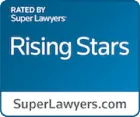Responding to Retaliation After Reporting Workplace Sexual Harassment

State and federal laws protect workers who assert their right to a workplace free of employment discrimination, including sexual harassment. These laws also make it illegal to retaliate against an employee who reports sexual harassment to a supervisor or manager or who acts as a witness in a complaint, investigation, charge, or lawsuit pertaining to sexual harassment.
If you have taken part in a sexual harassment complaint at your workplace and have experienced retaliation afterward, you may be entitled to seek compensation and other legal relief. A Tallahassee sexual harassment retaliation lawyer with Cruz Law Firm, P.A., can help you pursue a claim against your employer for retaliation after a sexual harassment complaint. Contact us today for a legal consultation about holding your employer accountable for their retaliatory conduct.
Grounds for Retaliation for Sexual Harassment in the Workplace
Retaliation occurs when an employer takes adverse action against a job applicant or employee who has asserted a right protected by federal or state equal employment opportunity (EEO) laws. Asserting EEO rights is protected activity.
Adverse acts that could be considered retaliation include:
- Not promoting a qualified employee
- Terminating an employee
- Denying pay raises, bonuses, or commissions earned or available to others
- Withholding or withdrawing work assignments
- Transferring the employee to a less desirable position or shift or
- Imposing unreasonable performance standards
- Issuing unwarranted negative performance reviews
- Placing the employee under increased performance scrutiny
- Excluding an employee from workplace activities
- Verbal or physical abuse, including spreading false rumors about the employee.
Laws Against Retaliation for Sexual Harassment in Florida
Florida workers and job applicants are protected from workplace retaliation by federal and state law:
- Title VII of the Civil Rights Act of 1964 makes it illegal to retaliate against an employee or job applicant who attempts to assert their rights to protection against discrimination and harassment.
- The Florida Civil Rights Act (FCRA) prohibits retaliation against an employee or job applicant who attempts to assert their rights to protection against discrimination and harassment.
- Florida’s whistleblower law (Florida Statutes 448.102) makes it illegal for an employer to retaliate against an employee who discloses, threatens to disclose, or provides testimony of their employer’s legal violations – including illegal harassment – or who objects to or refuses to participate in an employer’s legal violations.
Before you file a retaliation claim, there are steps to take to protect your rights and improve your case:
- Keep all documentation of your employer’s retaliatory behavior, including written correspondence, emails, text messages, other internal messaging system posts, and recordings or notes of in-person meetings.
- Gather records of any complaints, benefits claims, lawsuits, or official government investigations you have participated in.
- Gather your employment agreements, employee handbooks, and pay stubs/income statements.
- Contact your supervisor or human resources representative in writing to request records and explanations of any adverse employment actions that have been taken against you.
- Speak to an employment retaliation lawyer from Cruz Law to determine your legal rights to pursue a legal claim against your employer. Depending on the circumstances, we may be able to file complaints with the Equal Employment Opportunity Commission (EEOC) or the Florida Commission on Human Relations (FCHR) or take your case to court.
When the EEOC investigates charges against employers, it typically tries to resolve cases through mediation or a negotiated settlement. When cases cannot be resolved through negotiations or mediation, the EEOC may pursue a lawsuit.
In many cases, the EEOC declines to litigate and instead issues a Notice of Right to Sue letter, which gives the complainant 90 days to file a lawsuit in federal court seeking compensation from the offending employer.
In Florida, the Attorney General may pursue legal action against an employer who has violated the Florida Civil Rights Act. Such a claim may result in compensation paid to the injured employee or job applicant and civil penalties against the employer of up to $10,000 per violation.
A Florida employee who has been subjected to retaliation in violation of the state’s whistleblower law may file a lawsuit seeking damages, compensation to replace lost wages and benefits, reinstatement to the position held, and more.
If you have been subjected to sexual harassment or retaliation for objecting to illegal discriminatory behavior, a sexual harassment retaliation attorney can help you file a complaint and ensure that your rights are protected. We have found that it is best to work with a lawyer to initiate a complaint in Florida or before the EEOC. Few attorneys will want to step into a case after the state or the EEOC has declined to proceed and has given you only 90 days to prepare and file a federal lawsuit.
Laws Against Retaliation for Sexual Harassment in Florida
Florida workers and job applicants are protected from workplace retaliation by federal and state law:
- Title VII of the Civil Rights Act of 1964 makes it illegal to retaliate against an employee or job applicant who attempts to assert their rights to protection against discrimination and harassment.
- The Florida Civil Rights Act (FCRA) prohibits retaliation against an employee or job applicant who attempts to assert their rights to protection against discrimination and harassment.
- Florida’s whistleblower law (Florida Statutes 448.102) makes it illegal for an employer to retaliate against an employee who discloses, threatens to disclose, or provides testimony of their employer’s legal violations – including illegal harassment – or who objects to or refuses to participate in an employer’s legal violations.
Before you file a retaliation claim, there are steps to take to protect your rights and improve your case:
- Keep all documentation of your employer’s retaliatory behavior, including written correspondence, emails, text messages, other internal messaging system posts, and recordings or notes of in-person meetings.
- Gather records of any complaints, benefits claims, lawsuits, or official government investigations you have participated in.
- Gather your employment agreements, employee handbooks, and pay stubs/income statements.
- Contact your supervisor or human resources representative in writing to request records and explanations of any adverse employment actions that have been taken against you.
- Speak to an employment retaliation lawyer from Cruz Law to determine your legal rights to pursue a legal claim against your employer. Depending on the circumstances, we may be able to file complaints with the Equal Employment Opportunity Commission (EEOC) or the Florida Commission on Human Relations (FCHR) or take your case to court.
When the EEOC investigates charges against employers, it typically tries to resolve cases through mediation or a negotiated settlement. When cases cannot be resolved through negotiations or mediation, the EEOC may pursue a lawsuit.
In many cases, the EEOC declines to litigate and instead issues a Notice of Right to Sue letter, which gives the complainant 90 days to file a lawsuit in federal court seeking compensation from the offending employer.
In Florida, the Attorney General may pursue legal action against an employer who has violated the Florida Civil Rights Act. Such a claim may result in compensation paid to the injured employee or job applicant and civil penalties against the employer of up to $10,000 per violation.
A Florida employee who has been subjected to retaliation in violation of the state’s whistleblower law may file a lawsuit seeking damages, compensation to replace lost wages and benefits, reinstatement to the position held, and more.
If you have been subjected to sexual harassment or retaliation for objecting to illegal discriminatory behavior, a sexual harassment retaliation attorney can help you file a complaint and ensure that your rights are protected. We have found that it is best to work with a lawyer to initiate a complaint in Florida or before the EEOC. Few attorneys will want to step into a case after the state or the EEOC has declined to proceed and has given you only 90 days to prepare and file a federal lawsuit.
Retaliation for Sexual Harassment Claim
State and federal anti-discrimination laws give you a limited amount of time to file a complaint for discrimination or retaliation for objecting to discrimination. In general, you need to file a complaint within 180 calendar days from the day the incident took place or the date of the last incident of harassment or retaliation. The 180-calendar-day filing deadline is extended to 300 calendar days if a state or local agency enforces a law that prohibits employment discrimination on the same basis, which would be available for most claims in Florida.
Contact a Tallahassee Sexual harassment Retaliation Lawyer
We urge you to take action against sexual harassment retaliation as soon as possible if you have been subjected to this illegal behavior. Remember, you may be subjected to retaliation for reporting sexual harassment against yourself or someone else or assisting a co-worker who has been sexually harassed. Either way, the retaliation attorneys at Cruz Law Firm P.A., can help you hold your employer accountable.
You may be owed substantial compensation for the retaliatory treatment you have experienced. The attorneys with Cruz Law can help you demand it. Contact Cruz Law Firm for a confidential consultation about your legal options and how we can protect your rights during this difficult time. Contact us online or at (850) 518-6319 today.
Author: Cruz Law Firm P.A.
At Cruz Law Firm, P.A., we represent employees in Tallahassee, Jacksonville, and throughout the Florida Panhandle. We’ll fight to protect your employment rights, from workplace discrimination and sexual harassment to wrongful termination and whistleblower claims. Let us put our experience to work for you.





